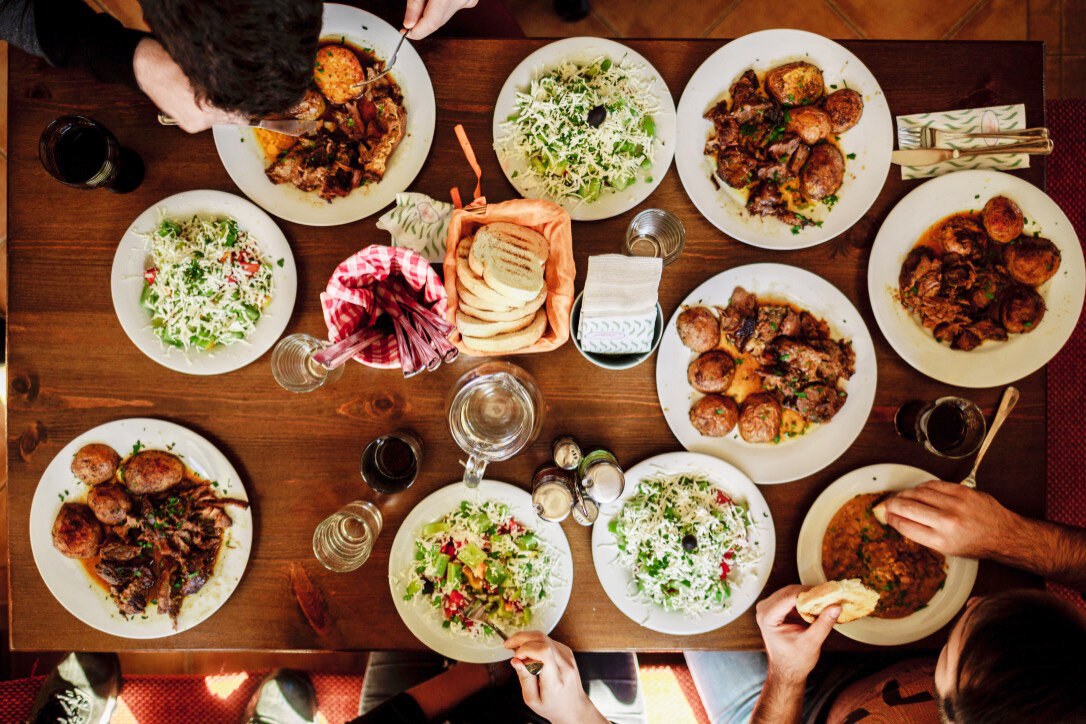How to Avoid Battles at the Dinner Table
Adapted from my forthcoming book—IT’S A FREAKIN’ MESS: How to Thrive in Divisive Times
What do you do when you are about to meet your extended family for dinner and there’s been a history of hot—or cold—arguments about politics, or other subjects of contention? Here are a few things you can do in advance:
Write down three things that you feel very grateful for this year. At some point at your dinner, you can say one of the things you feel thankful for, and then encourage others to join in. More on this later…
Make a decision, in advance, about whether to avoid political discussion altogether, or not.
If there is a person(s) you dread seeing, or feel apprehensive about—perhaps someone with whom you’ve had battles or disagreements in the past—you can do a powerful 5-minute audio exercise in advance. It’s called From Annoyance to Appreciation. The exercise also works to improve the heart-connection between you and any other person, whatever your previous history. Sign up below for the free audio exercise:
If opinions are very hot, and you do decide to avoid the subject of politics, the next question is how? If you studiously avoid political discussion with no acknowledgment that both sides are doing this, it can be awkward, with the unacknowledged elephants and donkeys in the room making everyone feel uncomfortable through their covert trumpeting and braying. One way out of this is to have an agree-to-disagree truce. For example, Look, I know we have different political opinions, and I strongly believe in our rights to our own viewpoints. I’d like to suggest that we don’t get into talking about politics. I really value your company, and I don’t want political disagreement to get in the way of our good family feeling. I’d like us to be able to agree to disagree and to have no bad feelings about each other having different viewpoints. How about having a moratorium on talk about politics—at least for now?
If, on the other hand, you do decide to talk about politics, there are…
six things you can do—or avoid doing—that might help prevent entrenched argument:
Do not try to convince the other person of your point of view. Even if you are sure you are right—in fact especially if you are sure you are right—this will not end positively.
Start by making a heartfelt connection. Focus on the commonalities you have already discovered from the audio exercise above.
Listen to the other person’s point of view with curiosity rather than judgment—and if you have judgment, it’s OK, just don’t express it.
Do everything in your power to find out about the other person’s needs, wishes, or values that are met by the position they support. What does it give them? What does it mean to them? Cultivate your own fascination with the answers to these questions. Be an explorer: find what is in it for them. Your genuine interest will create empathy and rapport.
If you truly want to build rapport, demonstrating that you hear this person’s point of view is perhaps the most important thing you can do. For example: So, it sounds like you’re saying that you are really scared that rising oceans might end up destroying coastal cities sometime this century, and that you want governments to do anything they can to prevent this. Stating the other person’s point of view doesn’t mean you agree or disagree; it lets them know you heard them. Another example: What I’m getting from what you said is that you feel angry about your living standard going down over the last thirty years. Your experience has been that no governments, Democrat or Republican, have addressed this, and, so, you wanted to vote for someone who would really rock the system.
Only if there is a good connection between you, should you venture to bring in your own point of view. Even then, it’s better if you are invited. Sometimes, when there is good rapport, the other side may eventually ask you a question out of the interest and curiosity that you have just modeled.
Whether you talk about politics or not, it’s a great idea to share what you are personally grateful for. Just share one thing and suggest that others might like to share one thing each. If they share more than one thing, that’s OK. Encourage everyone to share. After everyone has shared, perhaps share the second item you are thankful for. Shares of genuine thanks are usually touching and bonding—even more so when the gratitude is about what someone else at the table has done.
